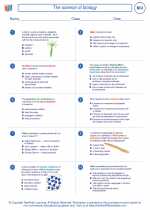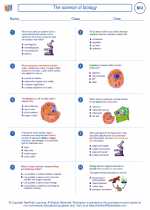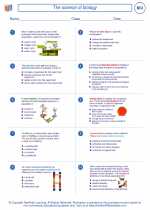Reaction with Acids
Acids are substances that release hydrogen ions (H+) when dissolved in water. When other substances come into contact with acids, various chemical reactions can occur. Let's explore the different types of reactions that can occur with acids.
1. Metal-Acid Reactions
When a metal reacts with an acid, it forms a salt and hydrogen gas. The general equation for this reaction is:
metal + acid → salt + hydrogen gas
For example, when hydrochloric acid reacts with zinc, the reaction can be represented by the following equation:
Zn + 2HCl → ZnCl2 + H2
2. Base-Acid Reactions
Acids and bases can neutralize each other through a reaction called neutralization. When a base reacts with an acid, it forms a salt and water. The general equation for this reaction is:
For example, when sodium hydroxide reacts with hydrochloric acid, the reaction can be represented by the following equation:
NaOH + HCl → NaCl + H2O
3. Carbonate-Acid Reactions
Carbonates, such as calcium carbonate, react with acids to produce carbon dioxide gas, water, and a salt. The general equation for this reaction is:
carbonate + acid → carbon dioxide + water + salt
For example, when calcium carbonate reacts with hydrochloric acid, the reaction can be represented by the following equation:
CaCO3 + 2HCl → CO2 + H2O + CaCl2
Study Guide
- What are acids and how do they behave in water?
- Describe the general reactions that occur when metals, bases, and carbonates react with acids.
- Provide specific examples of metal-acid, base-acid, and carbonate-acid reactions.
- Explain the concept of neutralization and provide an example of a neutralization reaction.
- Discuss the practical applications of acid reactions in everyday life and industry.
◂Biology Worksheets and Study Guides High School. The science of biology

 Worksheet/Answer key
Worksheet/Answer key
 Worksheet/Answer key
Worksheet/Answer key
